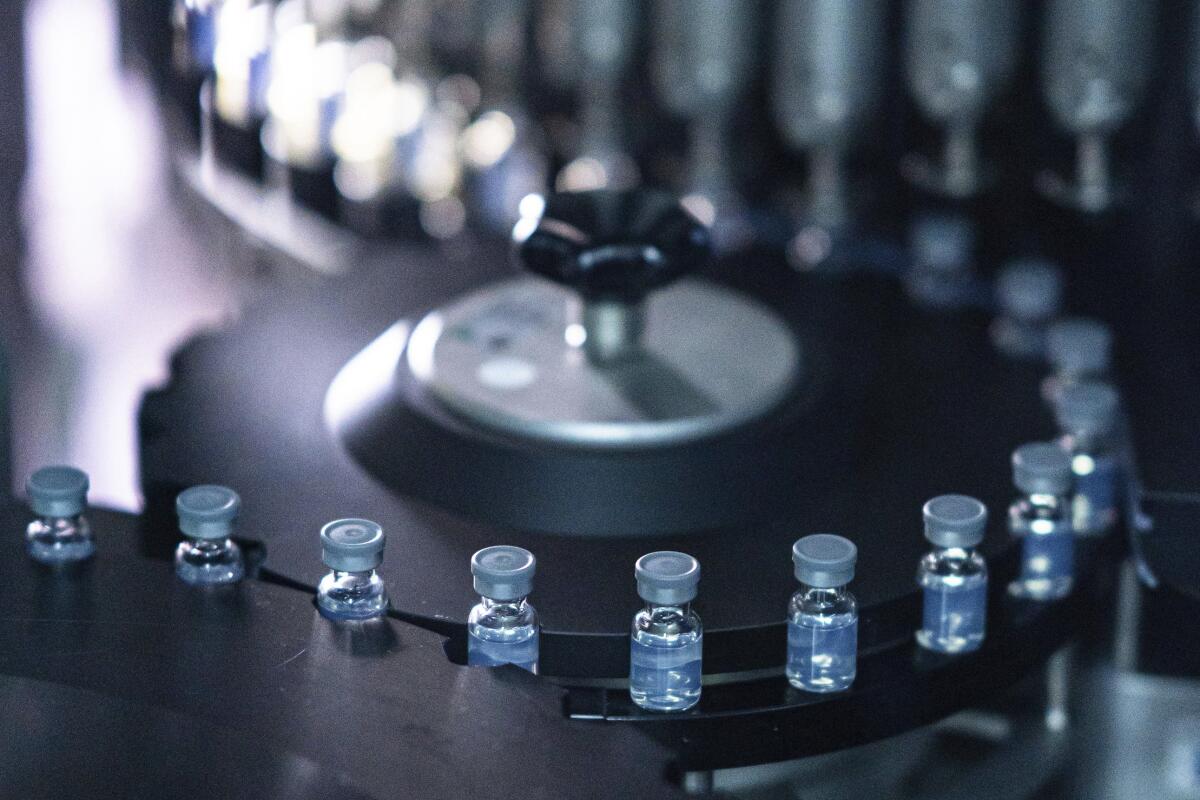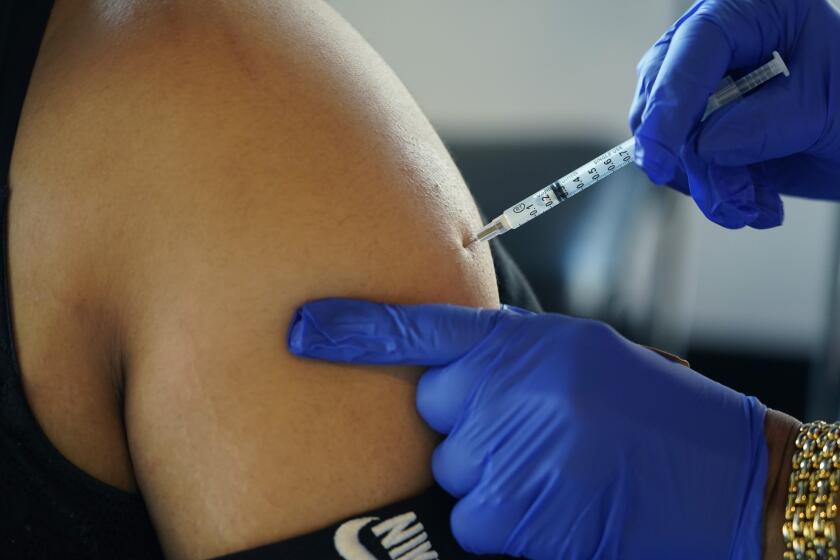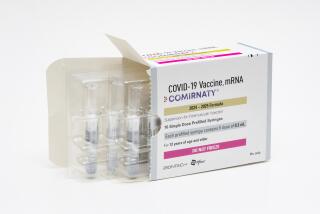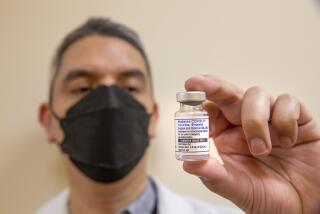Pfizer says bivalent booster increases antibodies for Omicron variants

- Share via
Pfizer Inc. and its German vaccine partner BioNTech said their new COVID-19 booster designed to target the dominant Omicron subvariant produced more antibodies against the intended strains than did the original version of the shot.
In a study, blood from 80 volunteers collected seven days after getting the booster showed an increase in neutralizing antibodies against the BA.4 and BA.5 subvariants, the companies said Thursday.
The updated vaccines made by Pfizer-BioNTech and rival Moderna were authorized without data on their performance in humans, as is done with updates to flu vaccines. Pfizer and BioNTech plan to release additional data on the COVID-19 shots in the coming weeks to measure immune responses one month after administration of the new bivalent booster, which also targets the original coronavirus strain.
The companies have not shared data on the shot’s efficacy, which would offer a better measure of protection against widely circulating variants.
“While we expect more mature immune-response data from the clinical trial of our Omicron BA.4/BA.5-adapted bivalent vaccine in the coming weeks, we are pleased to see encouraging responses just one week after vaccination in younger and older adults,” Pfizer Chief Executive Albert Bourla said in the statement. “These early data suggest that our bivalent vaccine is anticipated to provide better protection against currently circulating variants than the original vaccine, and potentially help to curb future surges in cases this winter.”
The shots for those age 5 to 11 could be available in Los Angeles County as soon as Oct. 19.
The vaccine partners studied two cohorts that had been given the new vaccine: one comprised those ages 18 to 55, the other those 55 and up. The older cohort demonstrated a weaker antibody response against BA.4 and BA.5 compared with the younger cohort, the companies said.
The U.S. fall booster campaign has been off to a slow start. Only about 13 million Americans have been administered an updated booster so far, a fraction of the demand seen in previous booster campaigns.
On Wednesday, U.S. regulators expanded access to the new bivalent booster shots to include children ages 5 and up.
Pfizer shares fell 0.4% at the New York market open, while BioNTech’s American depositary receipts fell 2.5%.
The World Health Organization is tracking more than 300 sub-lineages of Omicron at the moment. The BA.5 subvariant that swept across the globe this summer still dominates, accounting for some four-fifths of the samples that are genetically sequenced and identified. In the U.S., an estimated 79.2% of specimens are BA.5, according to the federal Centers for Disease Control and Prevention.







